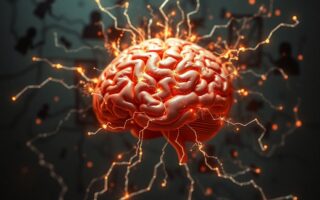Understanding Social Anxiety Disorder
Social Anxiety Disorder (SAD), also known as social phobia, is a mental health condition characterized by an intense and persistent fear of social situations. Individuals with SAD often experience overwhelming anxiety and self-consciousness in everyday social interactions, leading to avoidance of social activities and significant distress.
What is Social Anxiety Disorder
Social Anxiety Disorder is a psychiatric disorder characterized by excessive fear and anxiety in social situations. People with SAD often have an intense fear of being judged, criticized, or embarrassed in social settings, leading to avoidance behaviors and impaired functioning in various areas of life.
Social Anxiety Disorder Symptoms
Symptoms of Social Anxiety Disorder may include:
- Intense fear of social situations.
- Fear of judgment or scrutiny by others.
- Avoidance of social activities or situations.
- Physical symptoms such as sweating, trembling, or rapid heartbeat in social situations.
- Difficulty making eye contact or speaking in public.
- Fear of being the center of attention.
- Anticipatory anxiety before social events.
- Excessive self-consciousness and negative self-evaluation.
Social Anxiety Disorder Medication
Medications commonly prescribed for Social Anxiety Disorder include:
- Selective Serotonin Reuptake Inhibitors (SSRIs) and Serotonin-Norepinephrine Reuptake Inhibitors (SNRIs): These antidepressants are often used to reduce anxiety symptoms by regulating neurotransmitter levels in the brain.
- Benzodiazepines: These medications may be prescribed for short-term relief of acute anxiety symptoms but are generally not recommended for long-term use due to the risk of dependence and tolerance.
Social Anxiety Disorder Therapies
Therapeutic approaches for Social Anxiety Disorder include:
- Cognitive Behavioral Therapy (CBT): CBT is a highly effective form of therapy for SAD that focuses on identifying and challenging irrational thoughts and beliefs related to social situations.
- Exposure Therapy: Exposure therapy involves gradually exposing individuals to feared social situations in a controlled manner, allowing them to confront their fears and learn coping strategies.
- Acceptance and Commitment Therapy (ACT): ACT helps individuals with SAD accept their anxiety and learn to live a meaningful life despite their fears.
- Mindfulness-Based Stress Reduction (MBSR): MBSR teaches mindfulness meditation and relaxation techniques to reduce anxiety and improve overall well-being.
Social Anxiety Disorder Treatment
Treatment for Social Anxiety Disorder often involves a combination of medication, therapy, and self-help strategies:
- Medication Management: SSRIs, SNRIs, and other medications may be prescribed to help alleviate symptoms of anxiety.
- Psychotherapy: CBT, exposure therapy, and other therapeutic approaches can help individuals learn to manage anxiety and improve social functioning.
- Self-Help Strategies: Self-help techniques such as deep breathing, relaxation exercises, and social skills training can complement formal treatment and empower individuals to cope with social anxiety.
Social Anxiety Disorder DSM-5
In the Diagnostic and Statistical Manual of Mental Disorders, 5th Edition (DSM-5), Social Anxiety Disorder is characterized by persistent fear or anxiety about one or more social situations in which the individual is exposed to possible scrutiny by others. The fear must be excessive or unreasonable and significantly interfere with daily functioning.
Social Anxiety Disorder Test
Various screening tools and assessments are available to help diagnose Social Anxiety Disorder, including the Liebowitz Social Anxiety Scale (LSAS) and the Social Phobia Inventory (SPIN). These tests can help clinicians evaluate the severity of social anxiety symptoms and guide treatment planning.
Conclusion
Social Anxiety Disorder is a debilitating mental health condition characterized by intense fear and anxiety in social situations. Understanding the symptoms, treatment options, and available resources is crucial for individuals affected by SAD to seek help and regain control over their lives. With proper treatment and support, individuals with Social Anxiety Disorder can learn to manage their symptoms and lead fulfilling, socially engaged lives.













